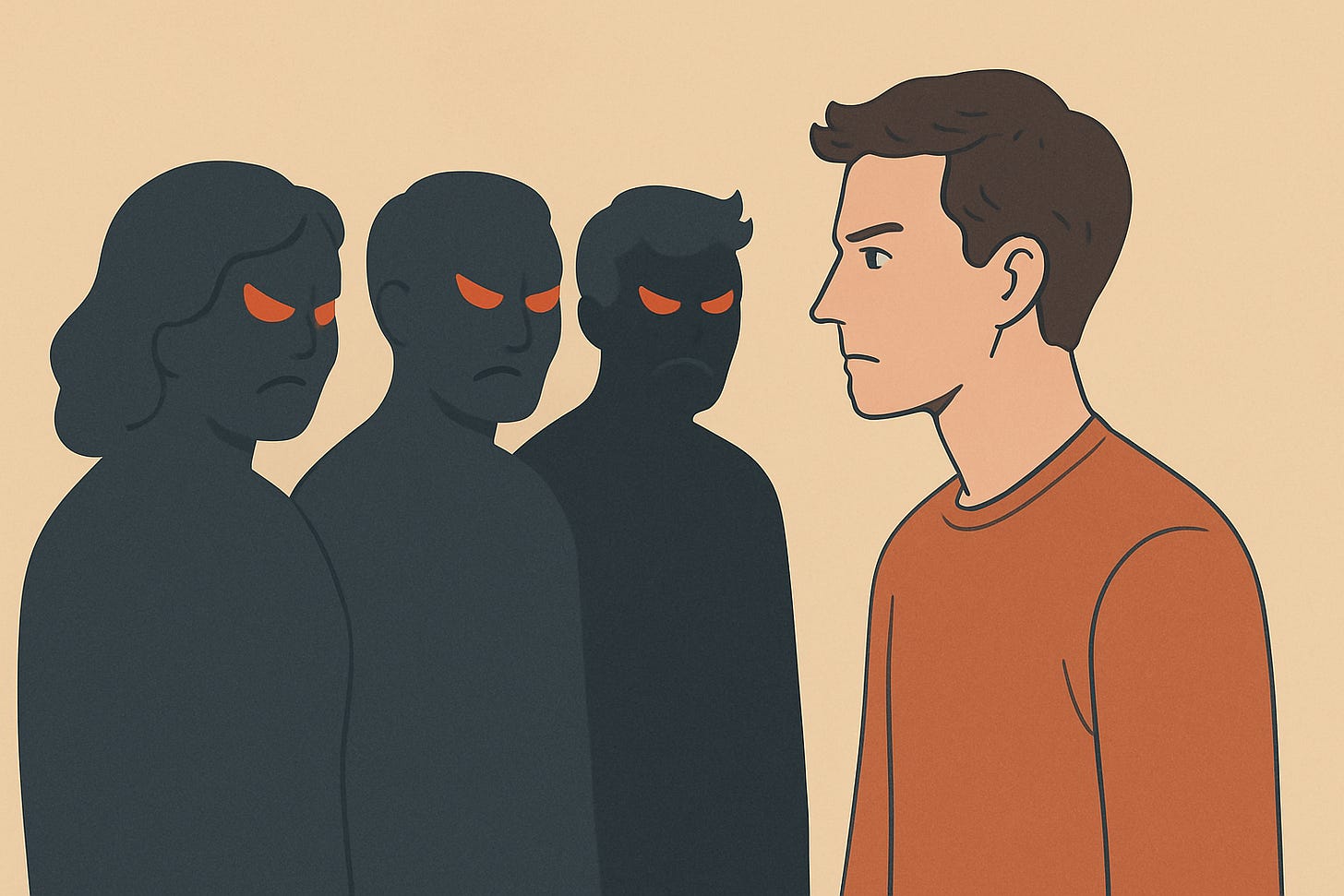Why We Say “They’re All the Same” but Expect to Be Seen as Unique
The hidden double standard in politics, culture, and human behavior
We’ve all heard (or said) it:
“They’re all like that.”
“That generation doesn’t get it.”
“Everyone in that group is brainwashed.”
But when someone turns that same lens on us?
We object. “I’m not like that.”
“Don’t generalize.”
“Everyone is different.”
This kind of thinking reveals a deep psychological bias—and a failure of ethical reasoning.
What’s Happening Here?
We apply a broad brush to people we disagree with—yet demand nuance.
Psychologists call this the Outgroup Homogeneity Effect:
We see the “other side” as all the same.
We see our side as full of diversity and complexity.
It’s emotionally convenient. It saves mental energy. But it’s not intellectually honest and leads to polarization, misjudgment, and a breakdown of meaningful dialogue.
The Generalization Principle (and How We Break It)
Philosophers call it the Generalization Principle:
If your reasoning can’t apply universally—without contradiction—it’s ethically flawed.
In other words:
If it’s okay for you to make an exception for yourself…
But it's not okay for others to do the same thing in similar circumstances…
Then your reasoning doesn’t hold up.
Common Examples of This Double Standard
Here’s what this looks like in everyday life:
We project motive and character onto others—while defending our actions as contextual and complicated.
Why This Hurts Us All
Generalizing others while making exceptions for ourselves might feel like a shortcut to clarity—but it comes at a steep cost. It weakens the foundations of civil conversation, honest thinking, and mutual respect.
Let’s unpack the consequences:
🧠 1. It Destroys Empathy
Empathy depends on seeing others as fully human—complex, contradictory, and capable of change. When we lump people into faceless groups, we strip them of that humanity.
We stop asking:
What led them to that belief?
What experiences shaped their worldview?
What would I think if I lived their life?
And we start saying:
“They’re all the same.”
“There’s no point in listening.”
“They’re beyond saving.”
The result? Walls, not bridges. Distance, not dialogue.
🔥 2. It Fuels Tribalism
The more we generalize, the more we retreat into “us vs. them” thinking. This creates identity-based camps where loyalty is prized above truth, and criticism of your own side is seen as betrayal.
Tribalism doesn’t just divide us—it incentivizes extremism:
The more outrageous someone is on “their side,” the more it justifies your outrage.
Nuance becomes a weakness.
Compromise becomes surrender.
What could’ve been a conversation becomes a contest of who can shout louder.
🧱 3. It Blocks Growth and Learning
When we write people off as “all bad,” we stop being curious.
And curiosity is the lifeblood of growth.
You can’t challenge your assumptions if you believe:
“Everyone on that side is wrong about everything.”
This mindset leads to echo chambers—where we only engage with agree-ent voices. Over time, we become not just uninformed about the “other side” but willfully ignorant.
💬 4. It Undermines Honest Debate
Honest debate requires good faith. It assumes your opponent might be wrong but also has a point worth hearing.
When we generalize, we shut that down.
If “they’re all stupid,” why bother engaging seriously?
If “they’re all evil,” why waste time trying to persuade?
We swap persuasion for performance.
Arguments become content.
And no one changes their mind—because no one is listening.
🧨 5. It Normalizes Double Standards
When we excuse ourselves from the standards we apply to others, we erode trust between groups and within ourselves.
Others notice the hypocrisy. So do we.
And once we accept one double standard, it becomes easier to receive more.
Over time, this thinking chips away at individual and social integrity. We end up in a world where accountability is selective, justice is tribal, and reason is optional.
How to Break the Pattern
To move forward—at work, in relationships, in culture—we have to hold ourselves to the same standard we demand of others.
Here’s how:
Interrogate your generalizations.
Would you say the same thing if it was about you?
Remember that no group is a monolith.
Every side, team, faith, or ideology is filled with internal disagreement and variety.
Apply ethical consistency.
If it’s not fair for others to stereotype you—it’s not fair to do it to them.
Disagree better.
Focus on arguments, not identities—critique ideas, not entire populations.
We Can Do Better
We’re not just being inconsistent—we’re being unfair.
We demand grace and understanding for ourselves.
Let’s offer the same to those we disagree with.
If we believe people are individuals, we must live like them—even when it’s hard or because it’s a story we tell ourselves.





